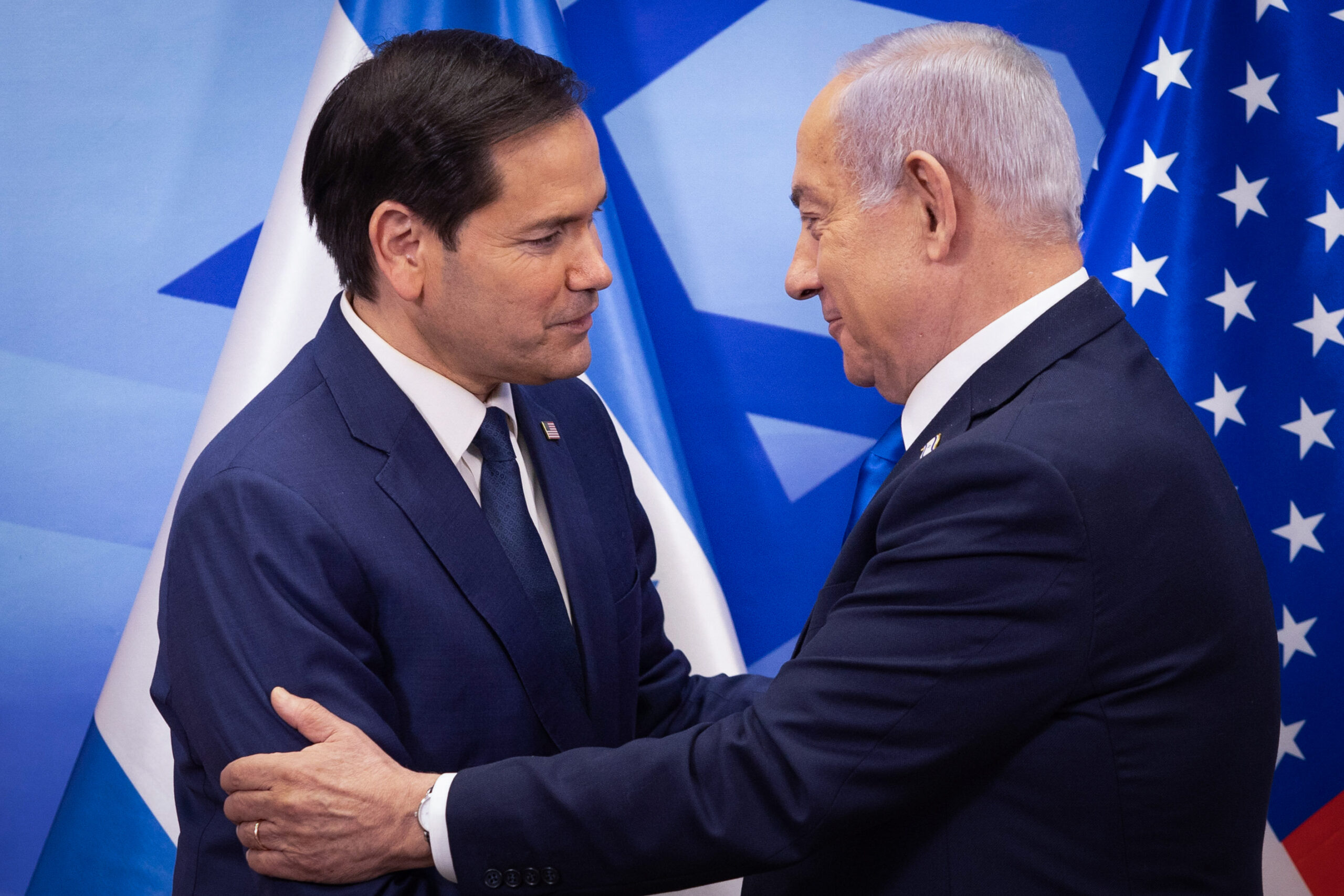In a show of unyielding support for the State of Israel, U.S. Secretary of State Marco Rubio arrived in Jerusalem on Sunday morning, just days after Israeli forces carried out a high-risk missile strike targeting Hamas leaders in Doha, Qatar. The visit underscores the Trump administration’s continued alignment with Israel’s core security concerns, despite diplomatic tremors caused by the strike.
Rubio was welcomed at Ben Gurion Airport by U.S. Ambassador Mike Huckabee and is scheduled to meet with Israeli Prime Minister Benjamin Netanyahu, President Isaac Herzog, and Foreign Minister Gideon Sa’ar. The Secretary of State will also visit the Western Wall and participate in a ceremonial inauguration at the historic City of David archaeological site in Jerusalem’s Old City — an emblem of Jewish heritage and Israeli sovereignty.
Rubio’s visit comes at a pivotal moment in U.S.-Israel relations. While President Donald Trump publicly expressed frustration over not being informed in advance about Israel’s strike in Qatar — an attack that targeted top Hamas leadership — Rubio has struck a more nuanced tone. Speaking before his departure at Joint Base Andrews, he acknowledged the administration’s displeasure with the surprise nature of the strike but made clear that it would not undermine the fundamental alliance between the two nations.
“What’s happened has happened,” Rubio told reporters. “We were not happy about it, the president was not happy about it. But it’s not going to change the nature of our relationship with the Israelis.”
In his first public statement after landing in Israel, Rubio reiterated the United States’ commitment to the Jewish state, writing on Twitter, “Hamas cannot continue to exist if peace in the region is the goal.” He emphasized the U.S. priority of securing the release of all hostages, facilitating humanitarian aid for civilians in Gaza, and confronting the continued threat posed by Hamas.
For years, Marco Rubio has been one of Israel’s most vocal defenders in Washington. As a senator, and now as Secretary of State, Rubio has repeatedly called for a hard line against Hamas, which he has described as a “genocidal terrorist organization committed to the destruction of Israel and the slaughter of Jews.”
Following Hamas’s October 7, 2023 attacks — the deadliest day for Jews since the Holocaust — Rubio strongly backed Israel’s right to self-defense and demanded international accountability for the group’s foreign sponsors, including Iran and Qatar. His stance has remained steadfast: Hamas must be dismantled, not appeased.
Rubio’s support for Israeli security has included opposition to premature recognition of Palestinian statehood. In recent weeks, he has warned European and Canadian leaders that unilateral recognition would invite consequences, potentially including Israeli annexation of parts of the West Bank. “These moves don’t advance peace — they reward terror,” he said last month.
On Monday, Rubio will join Israeli leaders in inaugurating the newly restored Pilgrims’ Path in the City of David — an ancient road that historically led worshippers from the Pool of Siloam to the Temple Mount. The site, which has become a symbol of Jerusalem’s Jewish identity, holds particular significance for Rubio.
“This is not just history,” he said before departing Washington. “It’s the story of a people returning home. The City of David is a powerful reminder that Jerusalem is, and has always been, the eternal capital of the Jewish people.”
His participation in the ceremony sends a message of alignment with Israeli sovereignty over Jerusalem, particularly at a time when some international actors seek to pressure Israel into territorial concessions that would divide the city.
While Rubio is expected to reaffirm America’s bedrock support for Israel, his meetings with Netanyahu and other top officials will include difficult discussions about the fallout from last week’s Doha strike. Though the IDF operation reportedly killed several Hamas associates, it failed to eliminate the senior leadership who had gathered in the Qatari capital — some of whom are believed to have escaped unharmed.
Prime Minister Netanyahu hinted as much in a pointed tweet over the weekend: “Getting rid of them would rid the main obstacle to releasing all our hostages and ending the war.” While some in the Israeli defense establishment had recommended delaying the strike to preserve sensitive negotiations, Netanyahu chose to act — a decision that drew quiet rebuke from Washington.
Even so, Rubio made clear that the true obstacle to peace remains Hamas, not Israel. “At the end of the day, Hamas is an evil group,” Rubio said Saturday. “It cannot be allowed to survive if peace is ever to be achieved.”
In the coming days, Rubio will also be tasked with gauging Israeli plans for the future of Gaza and the West Bank. According to Axios, Netanyahu hopes to discuss the possibility of West Bank annexation, especially if countries proceed with their unilateral recognition of a Palestinian state at the upcoming UN General Assembly.
Rubio has signaled privately that the Trump administration will not block such a move, though some within the State Department have warned it could endanger the Abraham Accords and strain ties with Arab partners.
But for now, as tensions simmer and Israel continues its campaign to dismantle Hamas’s infrastructure, Rubio’s visit is a clear message: the United States stands firmly with its democratic ally in the region.
“This is not just about diplomacy,” Rubio said. “It’s about the moral clarity to call terror what it is, and the courage to stand with those who fight it.”
As he stands beside Israeli leaders at the Western Wall, Secretary Rubio is not just offering solidarity — he is affirming that the U.S.-Israel alliance remains ironclad in the face of shared threats and common enemies.




